December 18, 2025 | 23:50 GMT +7
December 18, 2025 | 23:50 GMT +7
Hotline: 0913.378.918
December 18, 2025 | 23:50 GMT +7
Hotline: 0913.378.918
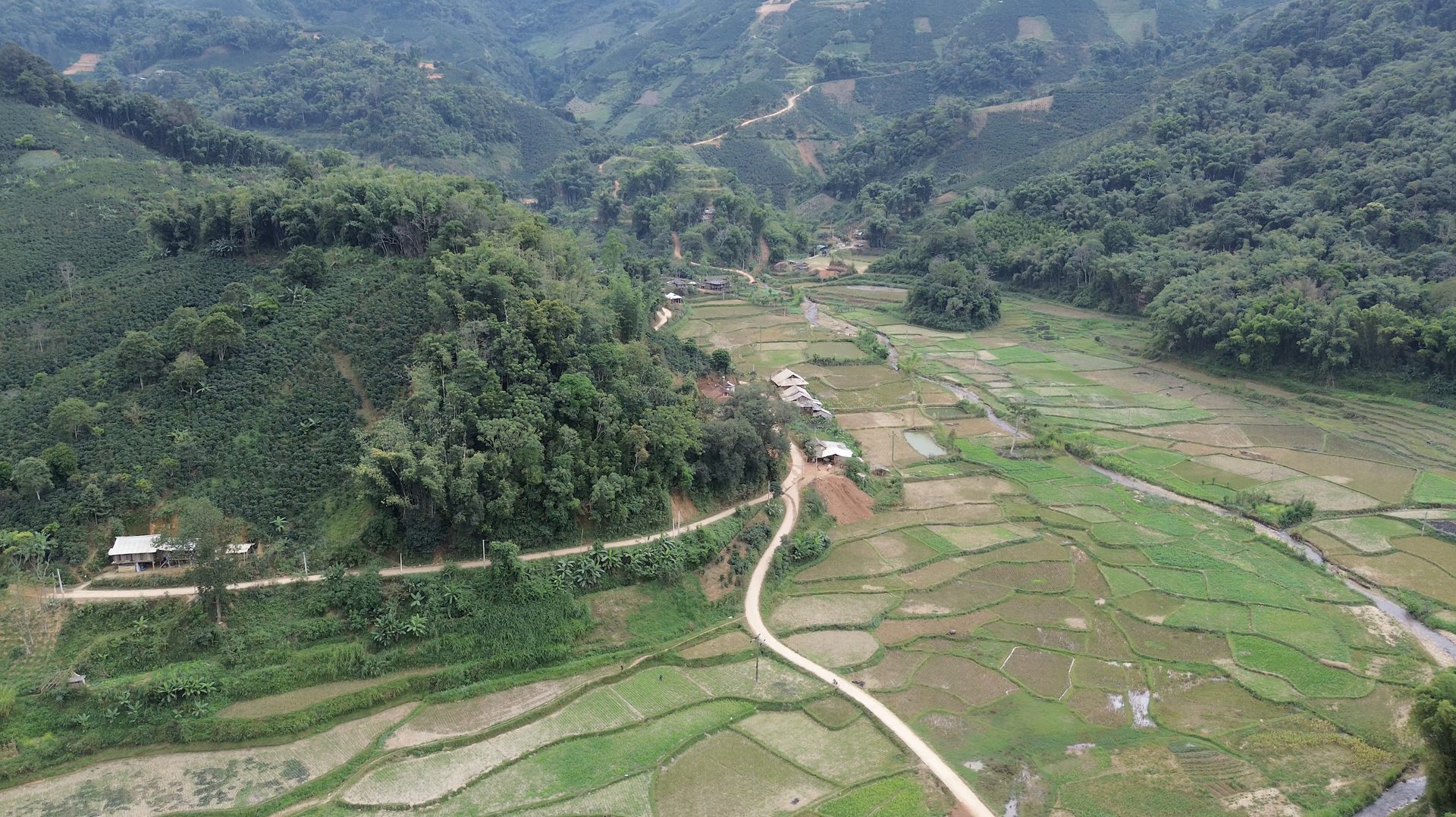
During a mission from August 18 to 22, 2025, a delegation of leading Senegalese scientists visited Son La province to learn about agroecological practices that strengthen soil health and improve food security for local communities. The trip was organized under a CIRAD-led initiative to foster South-South cooperation between Vietnam and Senegal.
In Mai Son, Son La, the delegation studied crop-livestock farming models designed to support ethnic minority households.
As a mountainous province with unique natural and economic conditions, Son La plays a key role in agricultural production across the Northwest region. In Mai Son, Vietnamese and French scientists are jointly implementing the project “Agroecological Transformation and Safe Food Systems” (ASSET), funded by the French research and technology transfer organization GRET.
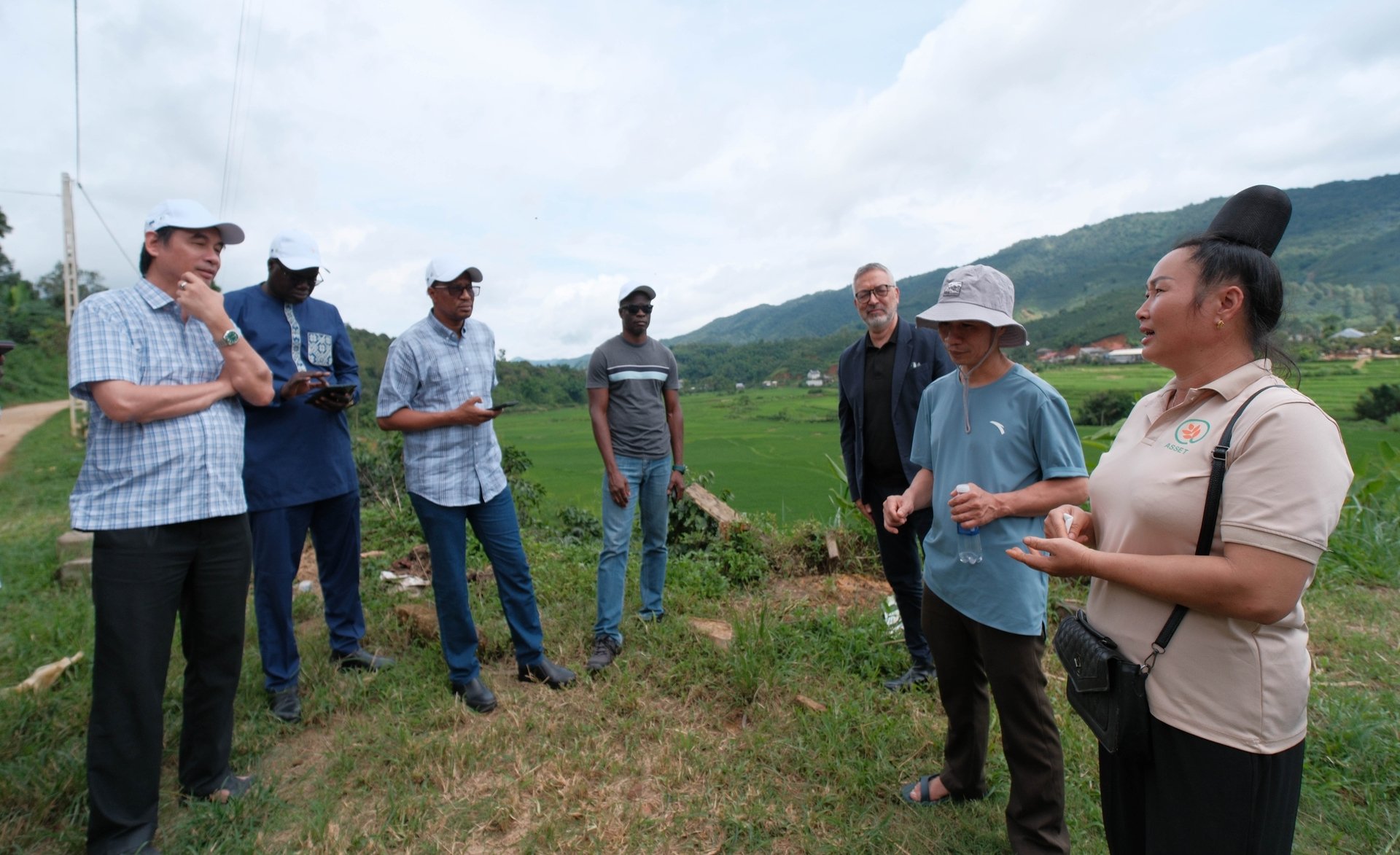
The delegation included Dr Waly Diouf – Coordinator of the National Program for Rice Self-Sufficiency (PNAR), Dr Abou Sall – Director of Development and Local Government Support (SAED), Dr Madiama Cisse – Scientific Director of the Senegalese Institute of Agricultural Research (ISRA), and experts and staff of the French Agricultural Research Centre for International Development (CIRAD).
On the Vietnamese side, Dr Dao The Anh – Director of the ASSET project in Vietnam and former Vice President of the Vietnam Academy of Agricultural Sciences (VAAS) – joined the visit alongside officials, experts, and local farmers in Son La.
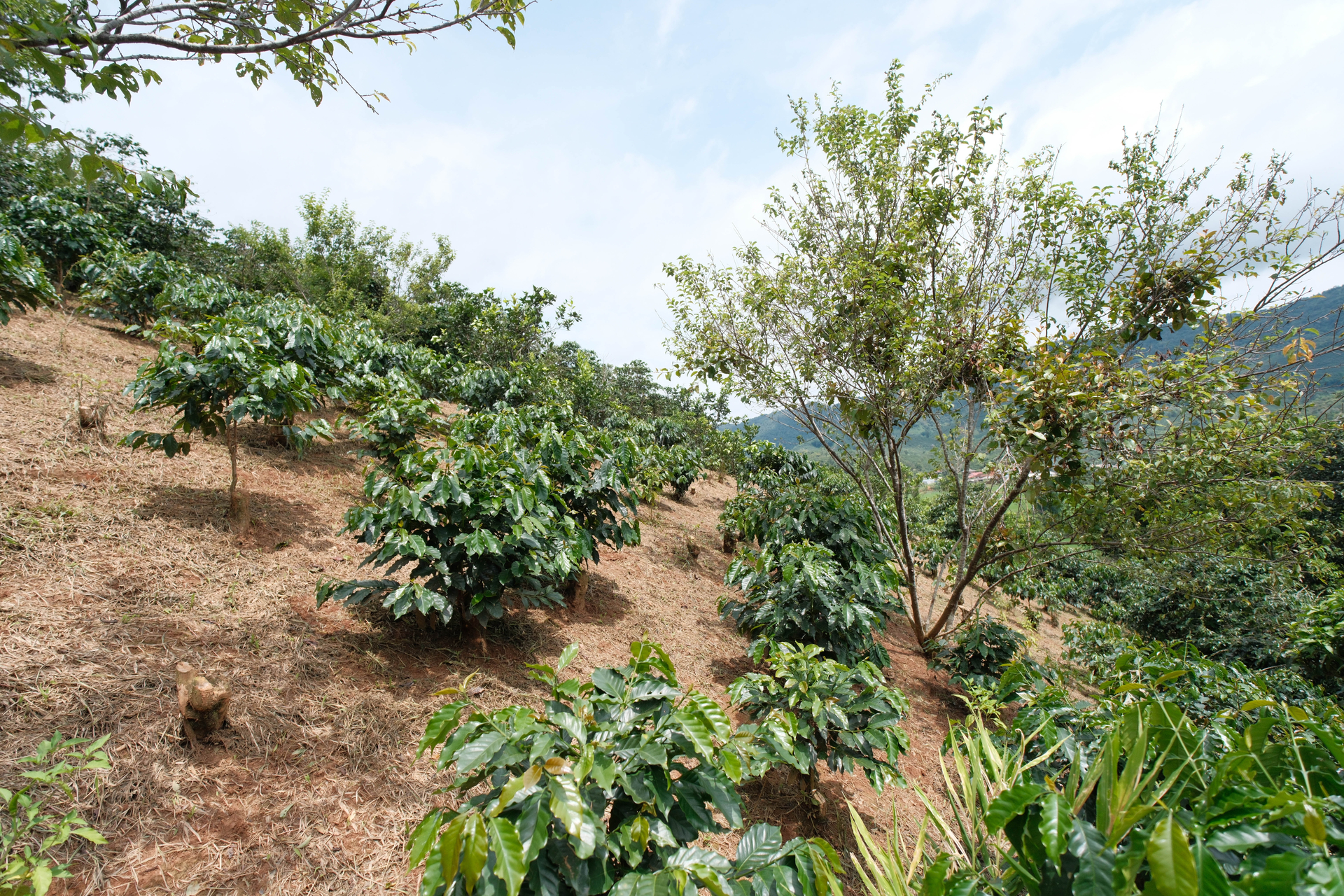
Through the ASSET project, local farmers have been trained to intercrop coffee with shade trees. This agroforestry model aims to reduce soil erosion and runoff, protect crops during the frost season, and enable more sustainable cultivation on sloping land.
The ASSET project has also introduced advanced pruning techniques to rejuvenate old trees and boost productivity. Instead of replanting, experts guide farmers to graft new, high-performing varieties onto older trees that show signs of decline but still have strong root systems.
Compared with new plantings (which require at least three years to mature and bear fruit), grafted shoots can begin yielding in just the second year if properly cared for. These grafted varieties are carefully selected for their ability to thrive in shaded environments while maintaining stable yields under shade trees.
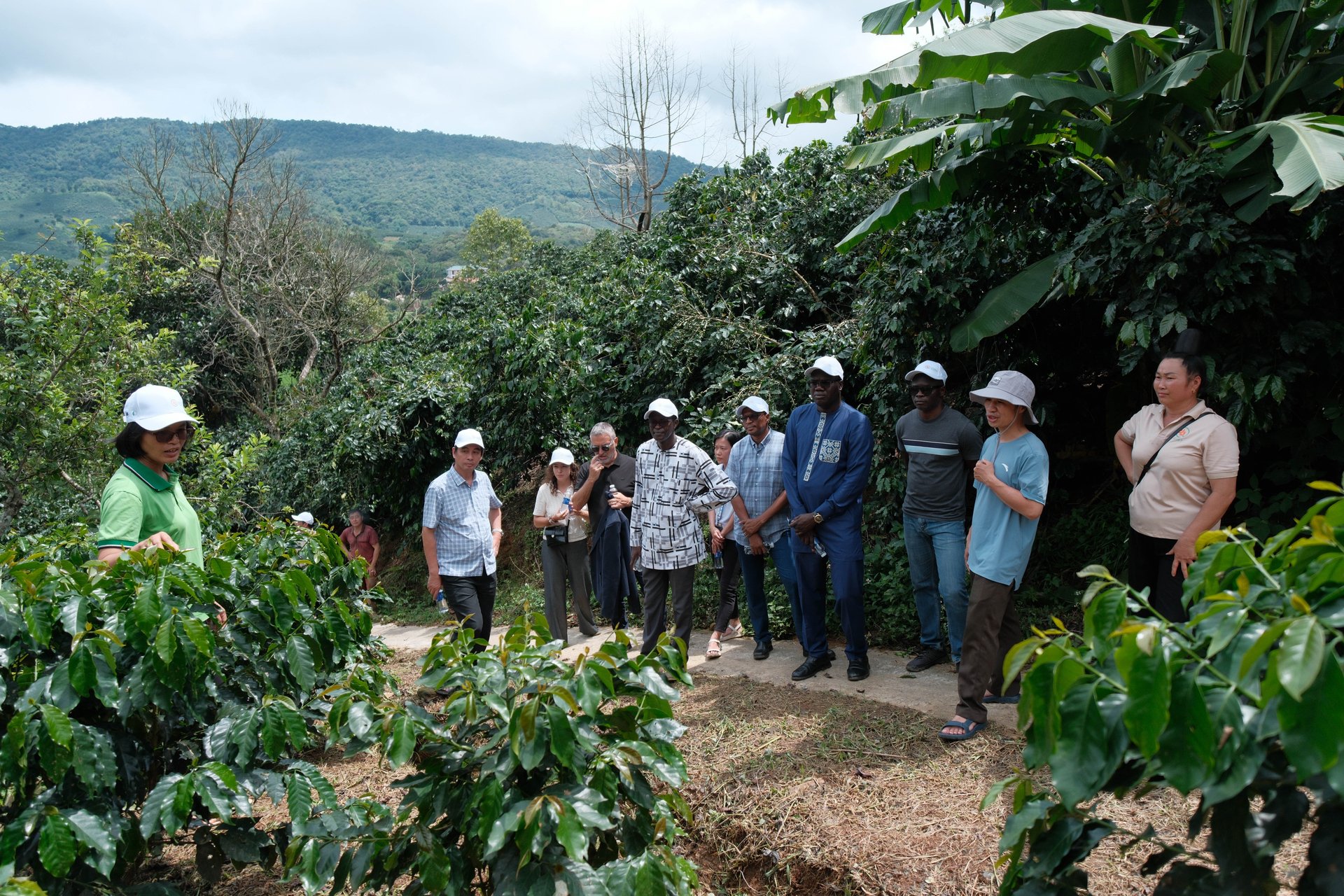
Over the past decade, Son La has advanced supportive policies to drive agricultural transformation. A landmark step was the Standing Committee of the Provincial Party Committee’s Conclusion No. 121-TB/TU (November 30, 2015), which unified mechanisms and policies, aligned land-use planning with production restructuring, and leveraged regional advantages. This policy created a breakthrough in shifting crop structures on sloping land, fostering the transition from small-scale, fragmented farming with outdated varieties and low productivity toward high-value, competitive commodity production.
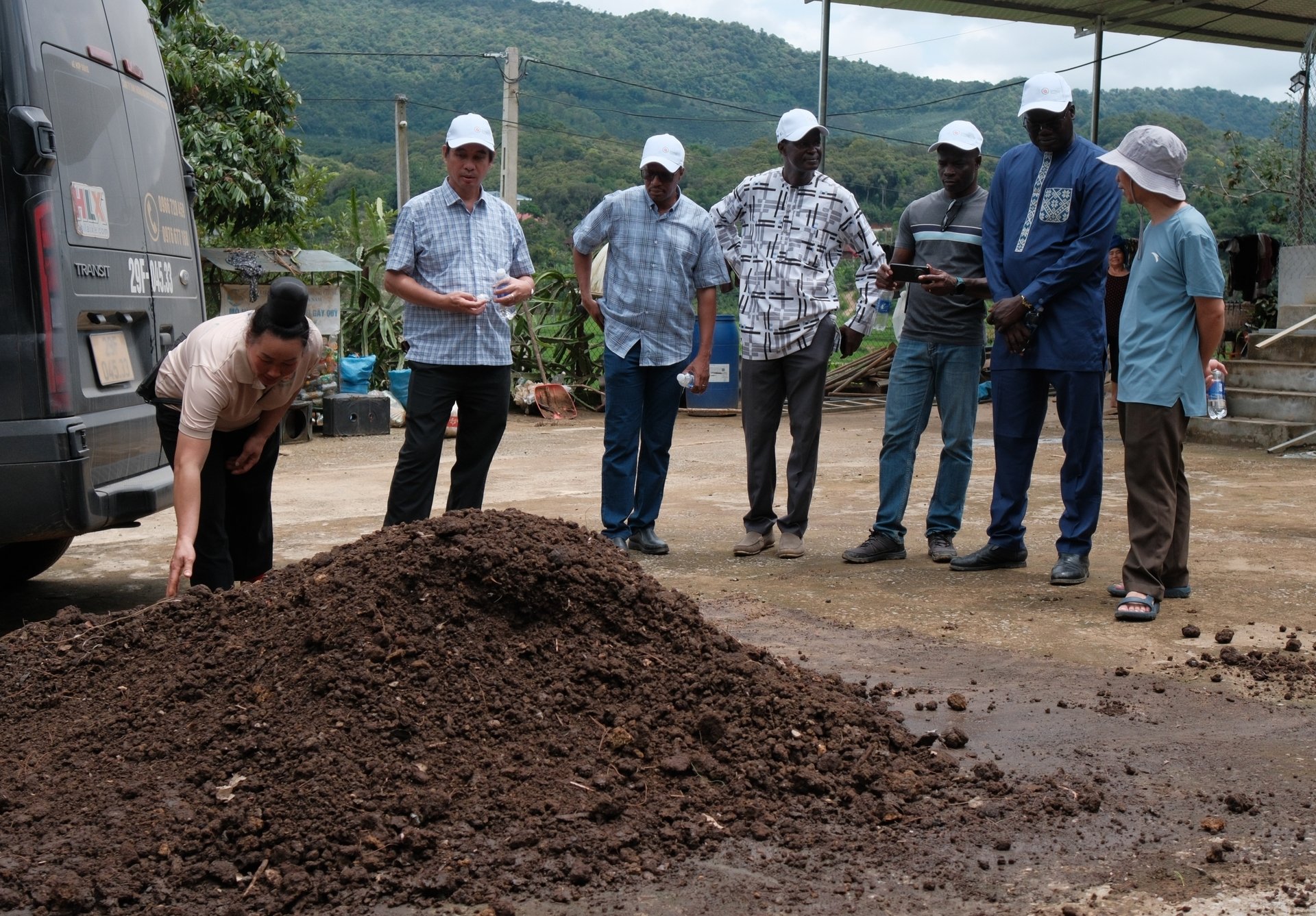
Vietnamese agriculture is moving toward greater environmental protection, resource regeneration, and emission reduction. Farming households in mountainous regions are an integral part of this process.
In Mai Son, manure treatment and composting techniques are helping to restore soil health and provide organic fertilizer. Households have also been equipped with machines to compress and pack manure for use in rice and coffee cultivation. By partially replacing chemical fertilizers and treating waste properly, these practices contribute to lowering emissions from household-level farming.
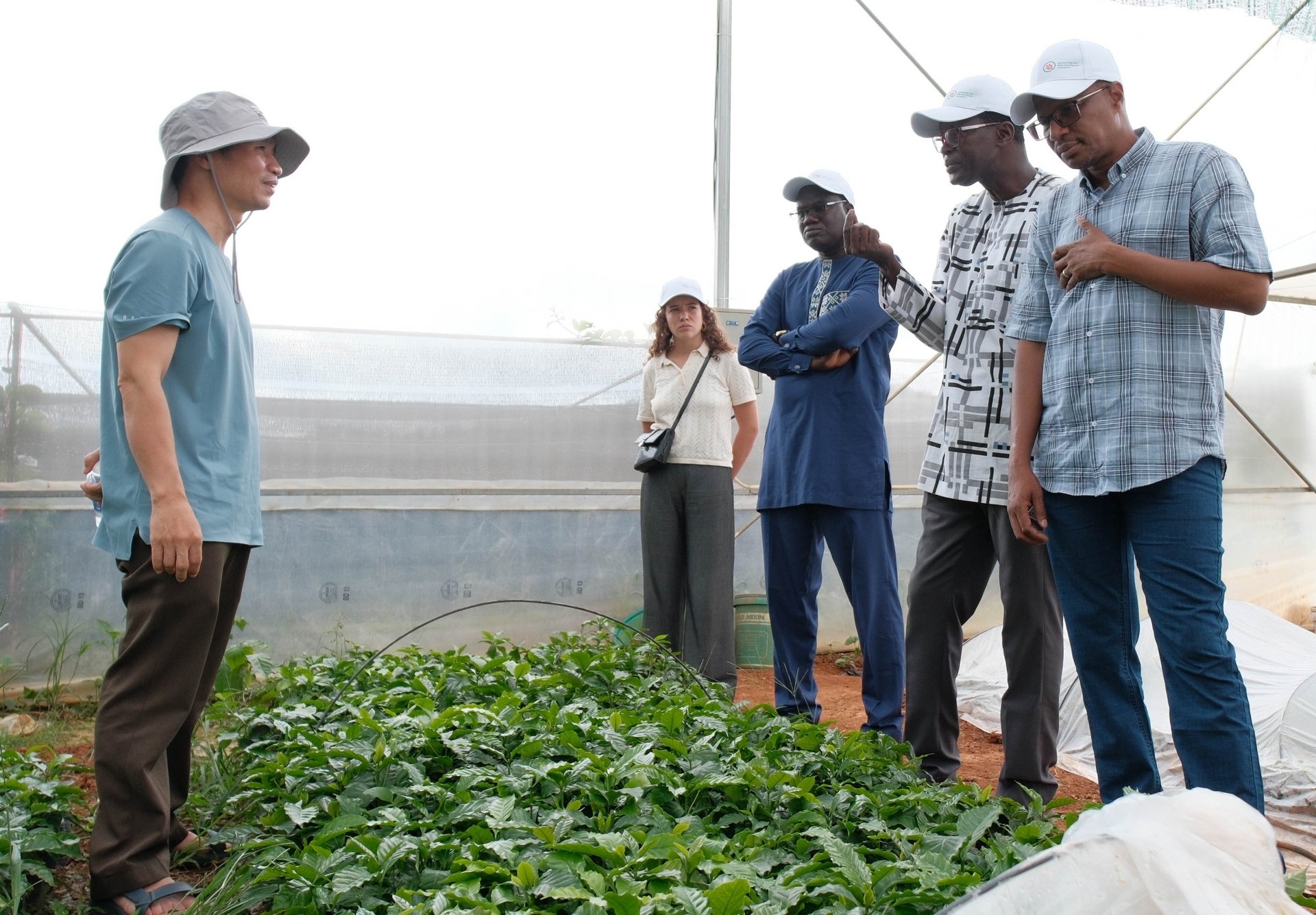
The Senegalese delegation also visited the North West Agriculture and Forestry Research and Development Center (NOMAFSI), where they learned about asexual coffee propagation techniques. Inside a 512 m² greenhouse, experts are producing F1 hybrid coffee varieties such as Starmaya, H1 (Centro-Americano), and H16 (Munda Maya).
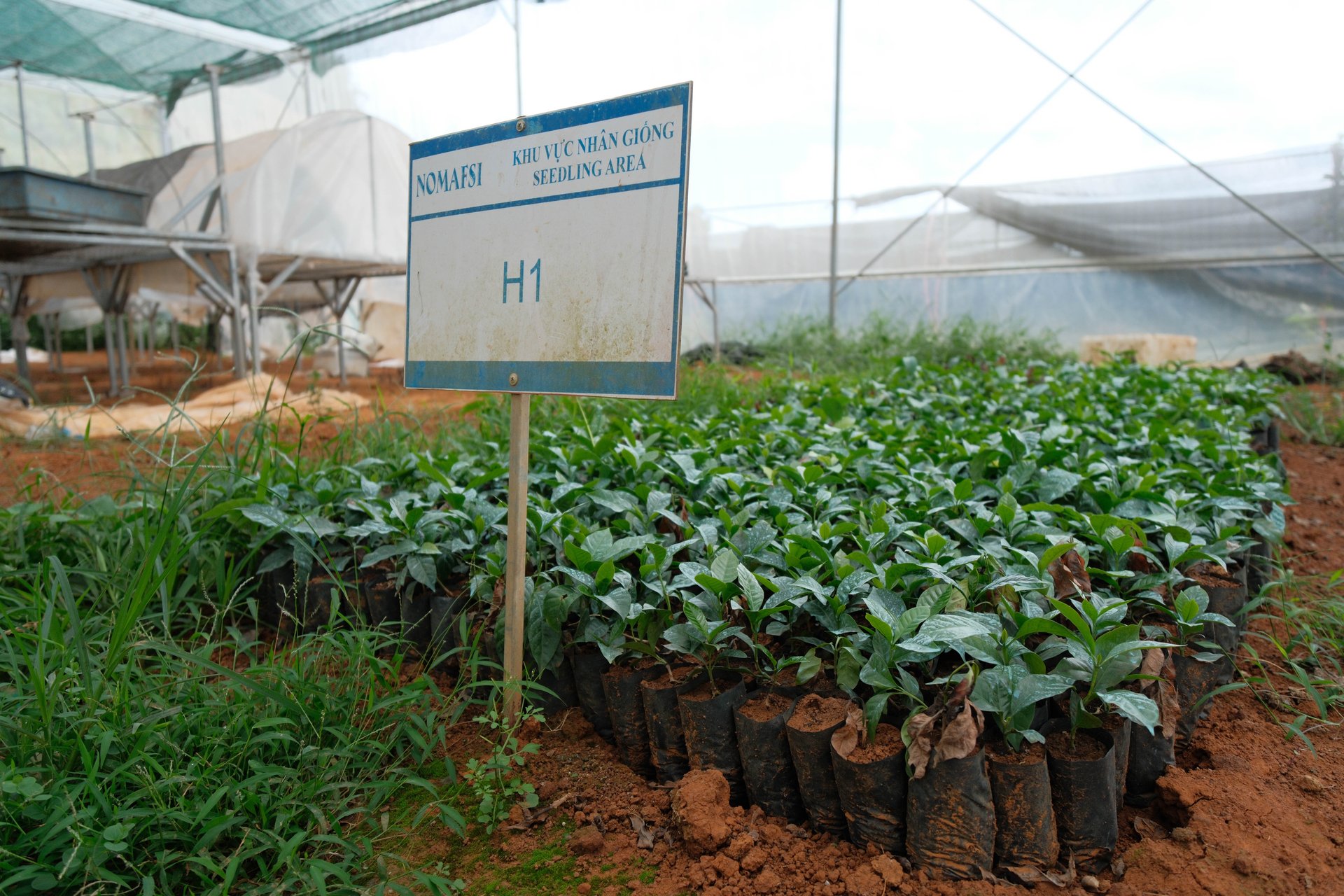
The greenhouse has the capacity to produce 80,000–100,000 F1 coffee seedlings annually, along with 10,000–15,000 shade-tree seedlings, supporting agroforestry models that combine coffee production with landscape restoration.
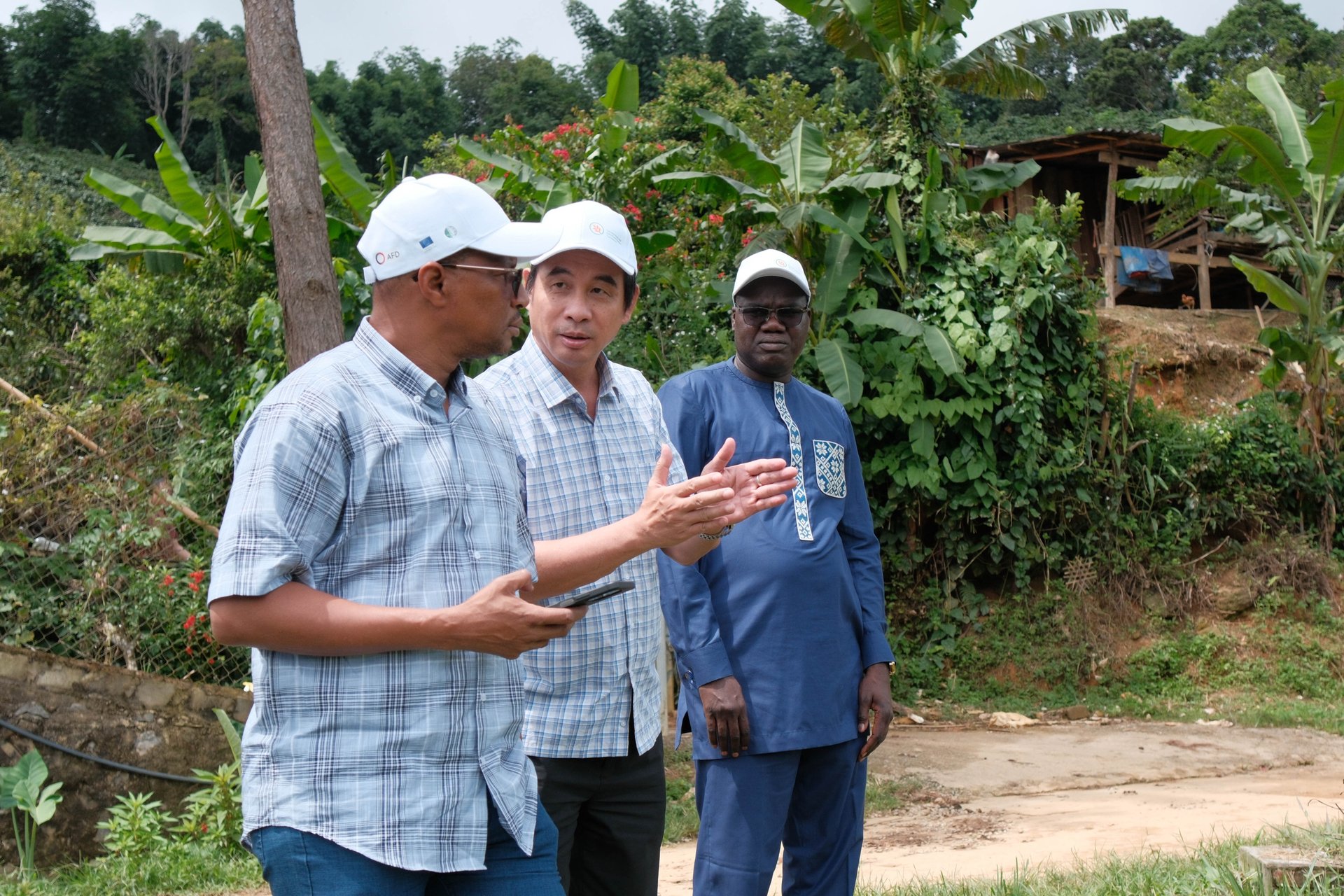
Dr Dao The Anh highlighted the potential of developing agroecology in Vietnam’s highlands, particularly in supporting ethnic minority communities to improve livelihoods while ensuring local food security and nutrition. He emphasized that promoting organic practices, crop rotation, and using indigenous varieties in harmony with traditional farming systems has generated a supply of safe, clean food, a strong advantage for building high-value food production chains.
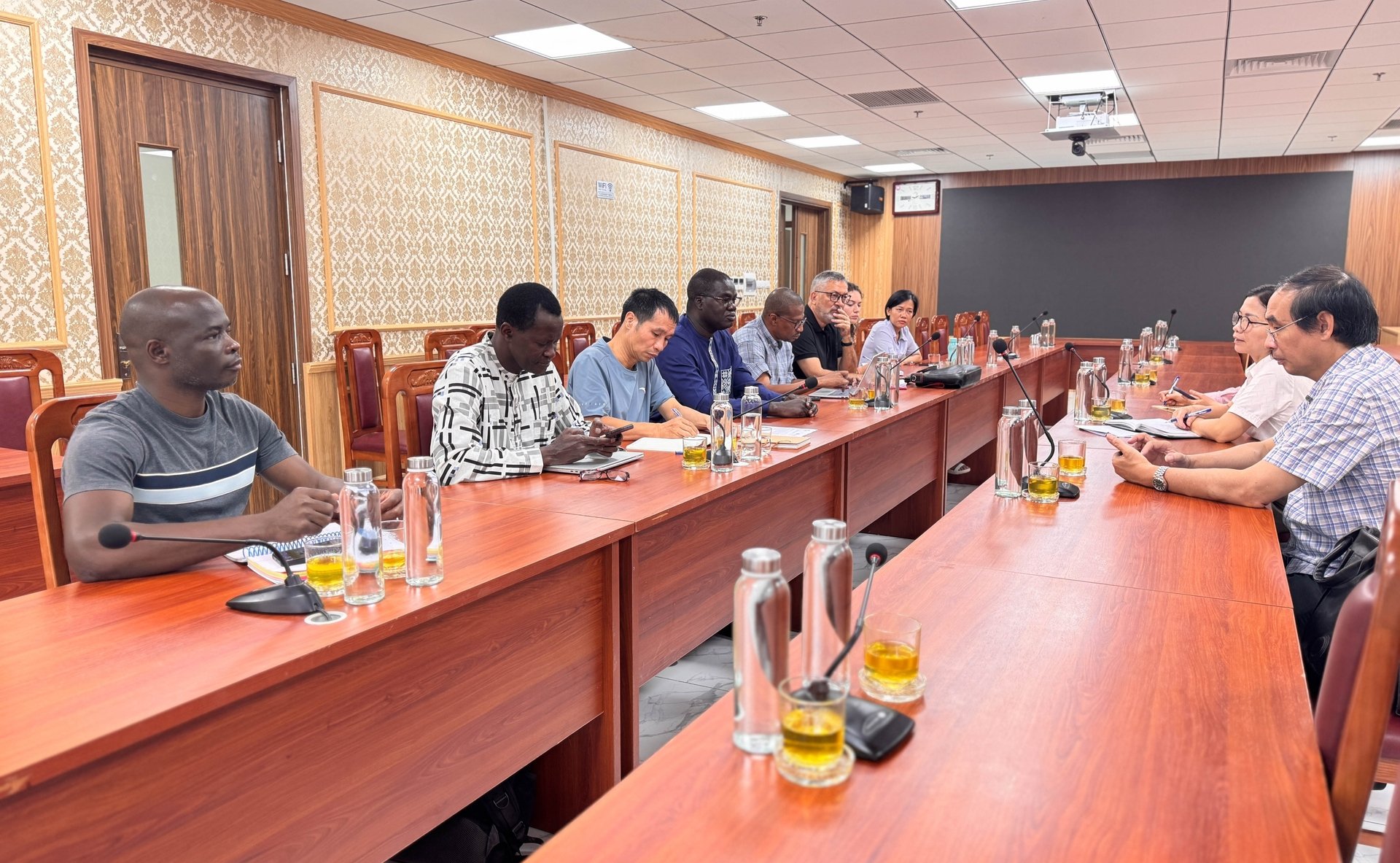
During a working session with Son La's Department of Agriculture and Environment, the Senegalese delegation expressed keen interest in the province’s development policies, especially land-use strategies and creating clear pathways for enterprises and cooperatives to engage in production linkages.
According to departmental Deputy Director Cam Thi Phong, Son La’s policies on crop development on sloping land have delivered “spectacular” results, transforming the province into a major hub for both fruit and industrial crops in Vietnam.
By 2025, the province expects its fruit-growing area to exceed 85,000 hectares, with around 67,000 hectares in commercial production and an estimated output of 510,000 tons. Key crops include longan (155,000 tons), mango (100,000 tons), plum (100,000 tons), banana (63,000 tons), passion fruit (3,500 tons), and dragon fruit (2,400 tons).
Meanwhile, Son La’s industrial crop area is projected to reach nearly 35,500 hectares by 2025, with a harvest output of about 102,000 tons. This includes nearly 38,000 tons of coffee beans, over 60,000 tons of tea, and more than 4,000 tons of rubber.
Building on these achievements, Son La has actively promoted agricultural trade, strengthened market connections, and advanced a cooperative-based model of agricultural development. The province is also attracting investment in science and technology to standardize the value chain from production to processing and distribution.

(VAN) Cuba is currently streamlining procedures to attract investors, with many new policies shaped by the practical experiences of Vietnamese projects operating in the country.

(VAN) Patrol Team No. 15 has been executing patrol, inspection, and control duties in the Southwest waters, a region identified as having a high risk of violations.

(VAN) UNICEF, IOM, and the U.S. Department of State have worked together to ensure the justice system becomes a protective shield for children and other vulnerable groups.

(VAN) As a key driving force of green transition, the circular economy is being identified as a strategic pillar of Viet Nam's new growth model.

(VAN) UNICEF and IOM receive this aid and provide essential services to assist families affected by recent storms and floods.

(VAN) Circular economy is regarded as a suitable pathway for Viet Nam’s fisheries sector, helping to improve production efficiency, optimize resources, and reduce environmental pressure.

(VAN) Vietnam and the UK are promoting cooperation in agriculture, environment, renewable energy, and green transition, with the goal of achieving Net Zero.